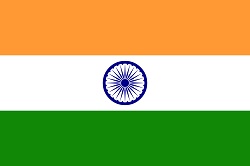India banned more than 300 so-called fixed-dose drugs that combine therapies often without new clinical trials in a widely used method that has formulations running into the thousands, many of which are approved at the state level. 
The Economic Times said the medications run from cough syrups widely sold as well as other drugs such as antibiotics. The ban was put in place immediately on Friday and India's Health Ministry expected to notify manufacturers and marketing firms to cease all activity for the products specified in a federal gazette notice on Monday.
Among the cough syrups, the Economic Times said, are Phensedyl made by the India unit of Abbott Laboratories ($ABT) and Corex from the local unit of Pfizer ($PFE).
"We have deliberated on the issue for around four years and these cases were examined and evaluated at different levels by the drug regulator as well as by an expert committee," a health ministry source told the Economic Times sister publication the Times of India.
The long-running issue of the clinical safety of fixed-dose drugs has been before India's Central Drugs Standard Control Organisation (CDSCO) for years with occasional bans ordered on specific products. However in December last year, Reuters reported that many drugmakers in India bypassed the national government and won state regulatory approval for fixed-dose combinations that are then marketed throughout the country.
Each state in India has its own drug regulator and they don't always follow the same approval process. In 2014, India set up a committee to review over 6,000 fixed-dose combinations on state approvals. But it is unclear if the federal order overturns those state approvals.
Some reports suggest that more than half of all drugs sold in India are fixed-dose and included products such as a combination of two antibiotics, cefixime and azithromycin, described as "toxic."
- here's the story from the Economic Times